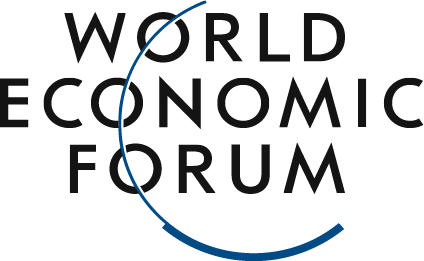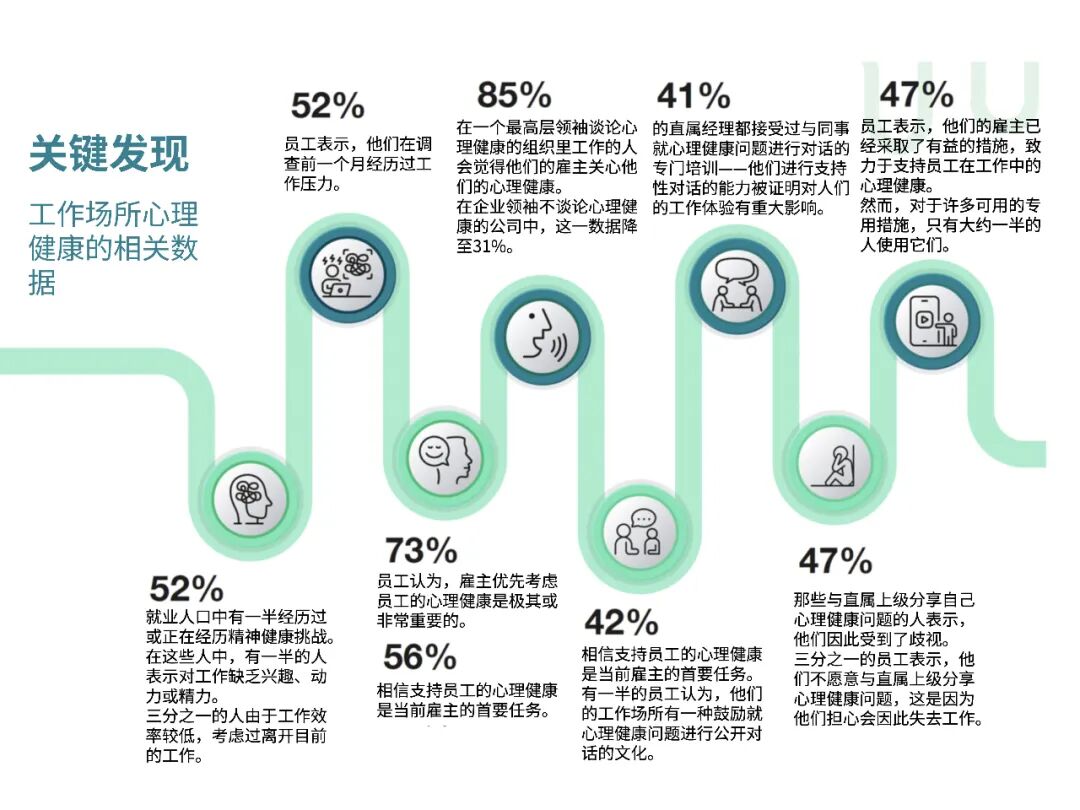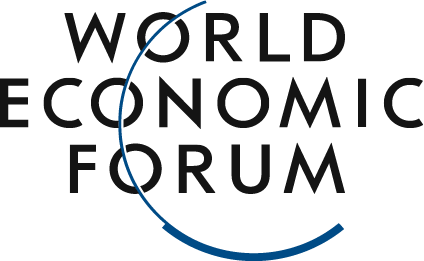A mental health crisis is impacting the workplace.
Image source:Stefan Spassov/Unsplash
Ruma Bhargawa
Head of the World Economic Forum's Mental Health Initiative
Poppy Jaman
Chairperson of the "Global Corporate Collaboration Program to Enhance Workplace Mental Health"
As the world grapples with a mental health crisis, there is growing attention on understanding and addressing the complex interplay between work and mental well-being.
Many business leaders now recognize their responsibility to support employees' mental health and are working together to identify common challenges while sharing effective solutions.
Increasingly, research is helping to guide their response measures, including a new report released by the Global Business Collaboration for Workplace Mental Health organization.
The world is grappling with a global mental health crisis that shows virtually no signs of easing—compounded by the COVID-19 pandemic, soaring living costs, and increasingly daunting global challenges, which have not only exacerbated existing issues but also heightened uncertainty for countless people.According to data from the World Health Organization, approximately 15% of the global working-age population suffers from mental health disorders, which not only impact individuals’ personal lives and relationships but also affect the workplace. Depression and anxiety cost the global economy around $1 trillion annually—equivalent to 12 billion lost workdays. Recent research by Deloitte further reveals that Generation Z and Millennials, who make up the vast majority of the workforce, are particularly hard hit: 40% of Gen Z and 35% of Millennials report feeling stressed or anxious most or all of the time, while nearly half have experienced workplace burnout.Companies must take action on mental health.These data call for immediate action. They underscore the need for employers of all sizes and industries to better understand the intricate link between work and mental health—specifically, how jobs can either safeguard or undermine well-being, and how mental health challenges, in turn, impact employees' performance and attitudes in the workplace.Good work and good health are inseparable. In fact, evidence suggests that employment can improve mental health even more effectively than psychotherapy. Since work plays a critical role in people’s lives and sense of identity, businesses have a responsibility to create workplace environments that enable current and future employees to thrive and adapt in an increasingly fast-paced, ever-changing world.These figures are alarming. Over half of the respondents said they are currently experiencing or have previously faced mental health challenges, a rate that rises to 65% among Generation Z. Among employees affected by these issues, one-third report lower productivity or have even considered quitting their jobs. Overall, 56% of respondents believe supporting employees' mental well-being should be employers' top priority. Moreover, half of the employees who’ve shared their mental health struggles with their direct supervisors say they subsequently faced discrimination as a result.Image source:Global Corporate Collaboration to Enhance Workplace Mental Health Programs
However, the report also reveals that when organizational leaders discuss mental health issues—or when direct supervisors engage in supportive conversations—many key indicators show significant improvement. This suggests that employers can make a real impact by prioritizing employee well-being as a strategic focus, while also pointing leaders toward the most effective actions to dismantle the stigma surrounding mental health in the workplace.Building resilient workplaces and societiesWe believe that such insights, coupled with strengthened collaboration across industries and regions, are essential for transforming groundbreaking challenges into opportunities for future generations. Guided by increasingly detailed data and open conversations around best practices, the actions businesses take today will pave the way toward building workplaces that are both resilient and adaptable—while also driving broader societal change by positively impacting workers’ families and communities.Businesses must take the lead in turning around the mental health crisis by driving action fueled by their collaborative potential and insightful understanding. But this isn’t a race for any single organization to win—it’s a journey from which we can all benefit.
The above content solely represents the author's personal views.This article is translated from the World Economic Forum's Agenda blog; the Chinese version is for reference purposes only.Feel free to share this on WeChat Moments; please leave a comment below the post if you’d like to republish.
Editor: Wang Can
The World Economic Forum is an independent and neutral platform dedicated to bringing together diverse perspectives to discuss critical global, regional, and industry-specific issues.
Follow us on Weibo, WeChat Video Accounts, Douyin, and Xiaohongshu!
"World Economic Forum"






